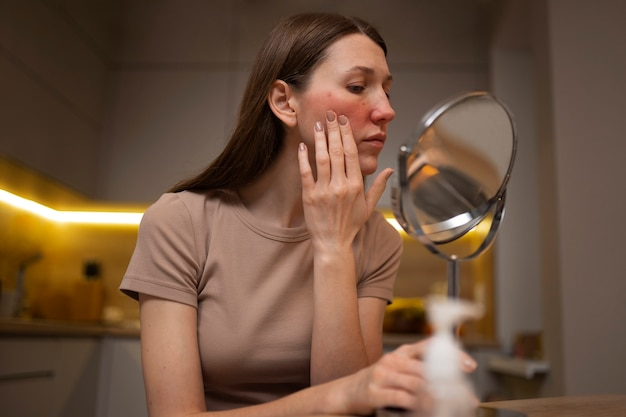Healthy skin starts with smart product choices - avoid these incompatible pairs!
Healthy skin is a key component of overall health and wellness, and as such, many people invest a significant amount of time and money into their skincare routine. However, it’s important to remember that not all skincare products are created equal, and certain combinations of products can actually be harmful to the skin. In fact, healthy skin starts with smart product choices – which includes avoiding incompatible product pairs.

By understanding which skincare products should never be used together, individuals can optimize their skincare routine and achieve the healthy, glowing skin they desire. In this blog, we’ll explore some of the most common skincare product combinations to avoid, and explain why they can be harmful to the skin. So, let’s dive in and learn how to make the most of our skincare routine by avoiding these incompatible product pairs.
Retinol and Vitamin C
Retinol is a powerful anti-aging ingredient that can help reduce the appearance of fine lines and wrinkles. Vitamin C is an antioxidant that can help brighten the skin and protect it from environmental damage. While both of these ingredients are great on their own, they should not be used together. This is because retinol is highly acidic and can break down vitamin C, rendering it ineffective. If you want to use both of these ingredients, it’s best to use them on alternate nights or use a product that contains both ingredients in a stable form.
Benzoyl Peroxide and Retinol
Benzoyl peroxide is a common ingredient in acne treatments, while retinol is used for anti-aging. While both of these ingredients are effective on their own, they should not be used together. This is because benzoyl peroxide is highly acidic and can break down retinol, rendering it ineffective. Additionally, using these ingredients together can lead to skin irritation and dryness.
Salicylic Acid and Glycolic Acid
Salicylic acid and glycolic acid are both exfoliating agents that can help unclog pores and improve skin texture. While they can be effective when used separately, they should not be used together. This is because using both of these ingredients together can lead to skin irritation, dryness, and even chemical burns. If you want to use both of these ingredients, it’s best to use them on alternate nights or use a product that contains both ingredients in a balanced form.
Vitamin C and Alpha Hydroxy Acids (AHAs)
Vitamin C is an antioxidant that can help brighten the skin, while AHAs are exfoliating agents that can help improve skin texture. While both of these ingredients can be effective on their own, they should not be used together. This is because vitamin C is highly acidic and can break down AHAs, rendering them ineffective. If you want to use both of these ingredients, it’s best to use them on alternate nights or use a product that contains both ingredients in a stable form.
Vitamin C and Niacinamide
Vitamin C and niacinamide are both popular ingredients in skincare products. Vitamin C is an antioxidant that can help brighten the skin, while niacinamide can help reduce the appearance of pores and improve skin texture. While both of these ingredients are great on their own, they should not be used together. This is because vitamin C is highly acidic and can break down niacinamide, rendering it ineffective. Additionally, using these ingredients together can lead to skin irritation and redness.
Conclusion
In conclusion, while there are many skincare products that work well together, there are also some that should never be used together. It’s important to read the labels of your skincare products carefully and be mindful of the ingredients that you are using. If you’re not sure which products can be used together, it’s best to consult with a dermatologist or skincare professional. By using the right products in the right way, you can achieve healthy, glowing skin without causing any damage.




